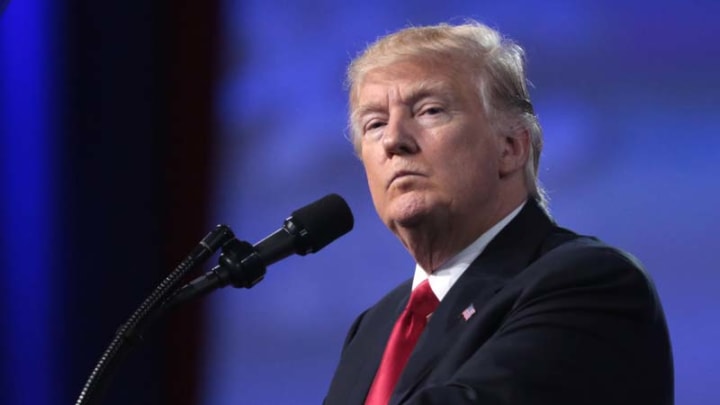
President Donald Trump’s first budget is expected to recommend cuts of about 28 percent to foreign aid, and while more details are expected Thursday morning, the budget looks to shift U.S. focus from soft power to hard power.
The budget will ask for a $54 billion increase in defense spending and look to offset that increase through cuts to other agencies, with the State Department and the U.S. Agency for International Development seeing some of the steepest cuts.
“There's no question this is a hard power budget … that was done intentionally,” Mick Mulvaney, the director of the Office of Management and Budget, told reporters in a briefing on Wednesday. “The president very clearly wants to send a message to our allies and our potential adversaries that this is a strong power administration. So you've seen money move from soft power programs such as foreign aid into more hard power programs.”
Mulvaney gave a broad overview but few details about what he called the “budget blueprint,” which will provide topline numbers for agencies and a few details on funding allocations.
What would deep cuts to U.S. foreign aid look like? Here's a look at how they could impact foreign assistance.
Read more news and analysis of what the Trump administration means for global development.
He announced the 28 percent cut to foreign aid in part to correct what he said were inaccurate numbers that were leaked to the media of steeper foreign aid cuts — there were numerous reports that cuts could be as high as 37 percent.
“We believe that we have protected the core diplomatic function of State,” Mulvaney said. “This is not a reflection of the president’s policies regarding an attitude towards State. The president believes very strongly in what [Secretary of State Rex] Tillerson is doing. What you see in the State Department budget is the reflection of the reduction of the foreign aid programs.”
No details were provided about what he meant by foreign aid programs, or which programs in particular would be cut, although the “skinny” budget released Thursday may provide more details, and the full budget, expected in May, will paint the full picture.
It is likely that even before then, there will be fierce debate in Congress about the steep cuts to foreign aid and the right strategy for U.S. engagement in the world.
"We’ll work to push back. One of the reasons we’ll push back is the hard power experts say, ‘you ought to be investing in soft power,’” Senator Tim Kaine, a Democrat from Virginia, told Devex.
Slashing foreign aid investments will create a world that is less safe, he said. The need for spending on diplomacy and development has been echoed by others in Congress, including Sen. Lindsey Graham, a Republican from South Carolina, who said the leaked 37 percent budget request would be “dead on arrival,” and Sen. Marco Rubio, a Republican from Florida, who gave a speech on the Senate floor outlining his arguments against the cuts. Senate Majority Leader Mitch McConnell, a Republican from Kentucky, said that proposal was unlikely to pass.
“I’m heartened by the fact that so many Republican senators are speaking up about the need to make these investments in diplomacy, global aid, and soft power. The fact that a Lindsey Graham, a Mitch McConnell, a John McCain are right away saying, ‘we’ve got to make these investments,’ that’s a good sign," Kaine added.
It’s clear that advocates for U.S. engagement on foreign aid will be rallying against any significant cuts to foreign aid, which are likely to bring about some fierce debate and dramatic consequences for people around the world.
Michael Igoe contributed to this report.
Stay tuned to Devex for more news and analysis of what the Trump administration means for global development. Read more coverage here and subscribe to The Development Newswire.




